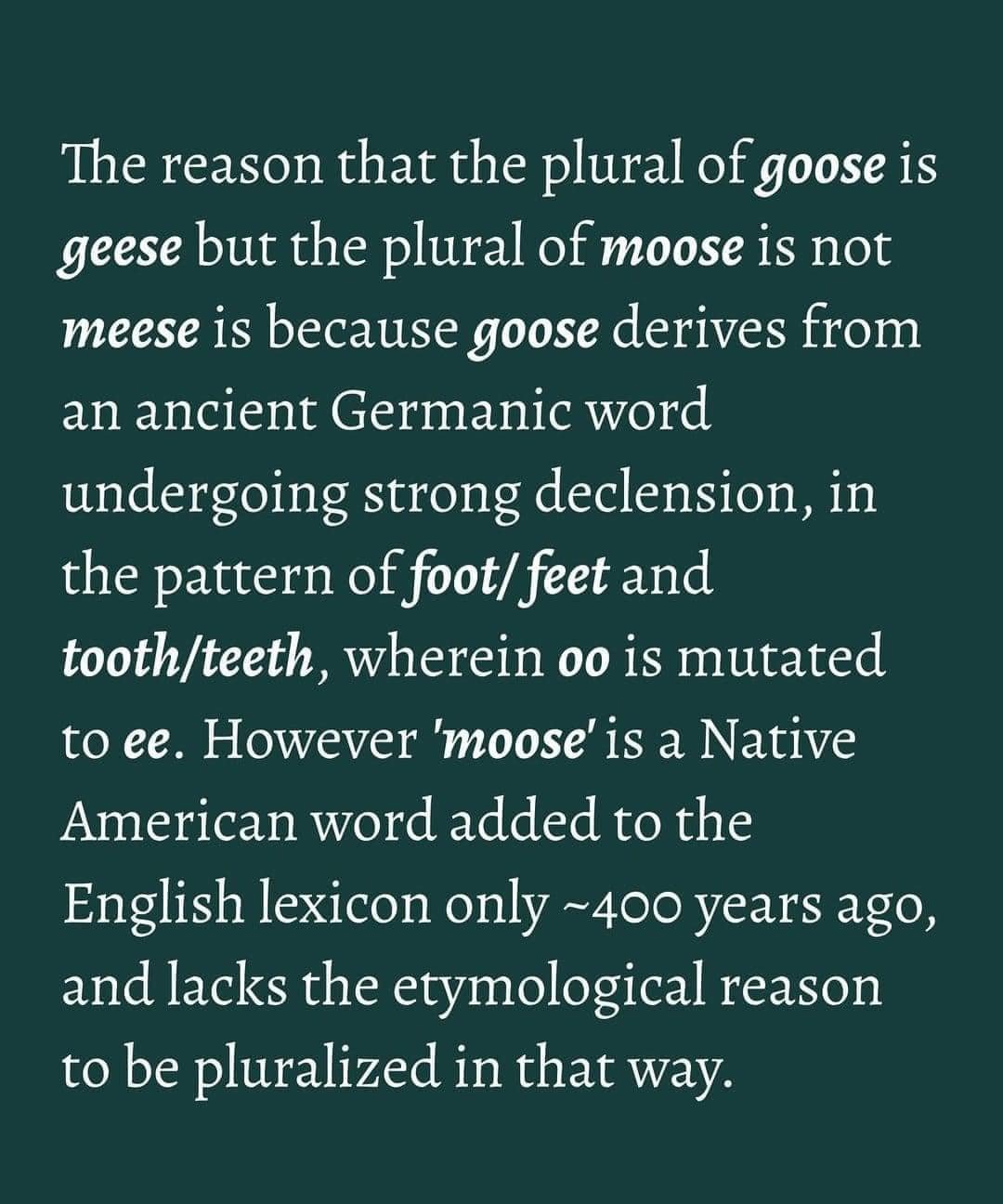Goose, Moose, and the Power Inherent in Language
This is a good example of how “the past” of a concept -“moose” for example, directly from Western Abenaki “moz” (to use one Algonquian dialect of many) - carries the force of its origins into the present, even if unseen or unacknowledged.
This is one way of understanding how and why “what has come before” matters, and why these things are worthy of, and indeed necessitate, investigating - the recognizance held in these cultural understandings continue into the present and can teach us other ways of perception of, or relating to, what is encountered, i.e. how we speak about the world around us. Indigenous languages, as essential part of their respective cultures, embody those shared understandings and point to how - as originally conceived - they are place-based and likely constitute the most appropriate means of engaging those places in a sustainable manner.
By the way, the plural of moz is mozak.... If one comprehends the reasons for which pluralization with a "k" is the choice (it might have been "l"), it opens up another, entire set of dynamic insights into the formative, spiritual (worldview) aspects held in the language - which is another way to recognize the power inherent in words. Linguists often characterize this choice as between “animate” or “inanimate” forms; but it has much more to do with the constant exchange and balancing of embodied spirit or energy. To put a twist on the Special Theory of Relativity, one might say that “the energy matters”. The language, in this case Western Abenaki - within the broad Algonquian kinship group or family - recognizes the primacy of this aspect of inter-relationship and awareness of being-ness. It is acknowledgement.
